This is an excerpt from my upcoming memoir . . .
I remember the air as a tangible presence. Clinging to my skin. Clogging my sinuses. Making me sluggish.
Off-stage, waiting in the wings, were the friends I would make in Turkey. Scene One called for loneliness. The setting: a chilled apartment and a sauna-like city below it.
On the last day of spring, 2010, I left Minnesota. It was difficult to say goodbye to Angela. Her return to Minnesota had been a gift, but now I would be away for most of her five years there. I was used to sending her, and her brother, Greg, off into the unknown. It felt strange to be the one facing uncertainty.
I took the midday Delta flight to New York and then flew overnight to Istanbul. Dark blue leather seats, the thin blanket slipping and sliding as I tried to get a night’s sleep.
Sankar picked me up at Atatürk airport with our new driver, a youngish, sweet-faced man named Ümit. The driver we’d had in January had wanted to work for us, but he ended up declining the job simply because he lived too far from us. With fifteen million people occupying a sprawling tangle of hills, shoreline, and narrow roads, Istanbul’s neighborhoods are almost Balkanized due to dense traffic.
Sankar’s secretary, Didem, a thin, almond-eyed woman in her thirties wearing a short, slim skirt and jacket, was also with Sankar, as one of her responsibilities was to help me get settled in Turkey. She introduced herself with the standard Turkish two-cheek kiss, and presented me with a small wrapped gift. It was a book called Istanbul: The Imperial City, written by John Freely, an American whose family, I would learn, had a long and accomplished history in Istanbul.
I thanked Didem, and she mentioned it would be nice for the two of us to have lunch sometime soon. I agreed and, delighted to be back in the Middle East, added to my “yes” an Arabic word I had used in Yemen: Insha-allah, meaning “if it is God’s will.” How I loved the richness of that word, inshaallah, in my mouth. It brought back my youthful adventurousness—and also my adaptability.
But the word didn’t have the effect I’d expected. A horrified expression passed quickly over Didem’s face and I saw her suppress a gasp. I wasn’t quite sure why. Was it because she didn’t expect me, a Westerner, to inject Islam into the conversation?
Recovering, Didem replied, “Of course.”
There were two ways to get from the airport to our apartment. On my first visit, we’d taken the majestic route, passing Istanbul’s ancient walls and the eastern side of the Old City, and crossing the Golden Horn. This time we took the other, a no-nonsense six-lane highway that cut a wide circle around the city, far from any monuments of interest.
Just as the suspension bridge leading over the Bosphorus came into view, we turned off the highway. Passing a mile of upscale shops and restaurants, we headed into a wooded residential area. As the road curved, the Bosphorus appeared, turquoise and majestic, far below. Then Ümit pulled up in front of our new apartment. He opened his door as soon as he shifted into park, sprinted around to where I was sitting, and opened my door. As we got out, he was already pulling suitcases from the trunk.
I’d been thinking about our home-to-be for the past five months, wondering if my impressions had indeed been sound. It looked to be so as we pushed open the ivy-clad wrought iron gate, followed the marble sidewalk through the now-verdant grounds, then went inside and up two stories. Inside, white walls and an expanse of polished wood floor greeted me. Our sea shipment was due to arrive any day, so the rooms were mostly empty, but Sankar had bought a black IKEA dining table and a couple of twin beds for the guest room.
I walked through the dining room and out the sliding door onto the balcony. The air was fresh and moist. To my right was a steep hill thick with eucalyptus and umbrella pines. An occasional Mediterranean-style home peeked through the foliage. In front of me lay the river-like, blue-green salt water of the Bosphorus. A container ship far below, with tiny-looking, building-block-like cargo, was coming around a bend from the north. The sun gleamed off the red roofs of the apartments and houses below. “It’s more beautiful than before,” I told Sankar.
I had never lived in a place with such a varied, majestic view. But I couldn’t enjoy it for long. We had places to go.
Our neighbors, Sema and Pinar Bakır, who occupied the entire floor below us, had met Sankar when he moved in, and in subsequent conversations had invited the two of us for tea. Thus, within only an hour of my arrival, we were sitting on a wide, white couch in their elegant apartment. I felt flattered, but knew this was not only Turkish hospitality, but also curiosity; the pair, just a few years older than us, had lived in the building for three decades and raised their children there. They wanted to know who we were.
Tall and thin, with shaggy white hair, Pinar was a retired textile industry executive. Sema was petite and animated, with caramel-colored hair curled in a pageboy. Both had attended Robert College, Turkey’s most prestigious high school, before going on for university degrees. Their English was nearly flawless, and as we talked, we learned that the U.S. was their second country. Their son, Can (pronounced “John”), had graduated from Brown University, and their daughter, Yasmin (“She’s an American citizen; she was born there,” Pinar informed us) was studying in Florida, where they owned an apartment and, oddly, a gas station.
“But it’s a BP and nobody is buying from BP right now,” Pinar grimaced. We all laughed. I had been unusually upset about the Deepwater Horizon oil spill of two months earlier, watching daily news intently and mourning the loss of wildlife and livelihood. But now, after less than 24 hours away from home, distance was altering my perspective, and the idea of Americans scurrying to other gas stations seemed silly and amusing.
We drank several tulip glasses of tea and helped ourselves to some golden squares of baklava. Then, with jet lag beginning to set in, we thanked Sema and Pinar, and headed upstairs to do some unpacking.
Sankar had purchased a desk for me, and he’d placed it in niche next to our living room window. There, with the help of the Internet, I could connect with the rest of the world. Sitting high above the water, with sky and sea all around, I felt like I was on a flying carpet. I greatly appreciated Sankar putting this in place for me before I arrived. It went a long way toward affirming that I was a serious person in need of workspace.
What a difference the Internet would make in this, my third foreign assignment! The first time I lived overseas I hadn’t even had a phone in my house. I had to go to the Cable and Wireless office in downtown Sana’a and “book a call,” three minutes for $27. In Costa Rica, the Internet and email were in their infancy, but Sankar had had a company cell phone, and I was able to call home frequently. This time I would have that and more. Thanks to email, Skype, and social media, I would never be far from family and friends.
A routine quickly emerged. My days alone would be long because Sankar’s workdays were long. Ümit picked him up by 7:15 a.m. each day so as to get across the bridge into Asia (the company was located just across the Fatih Sultan Mehmet Bridge—known to all as The Second Bridge) before traffic built up.
Turks had all sorts of strategies for beating the perennially heavy Istanbul traffic. Many chose to live and work on the same side of the Bosphorus. Others started work late and then continued into the evenings. Sankar preferred an earlier schedule, but his days inevitably dragged out with meetings, and he didn’t usually finish until after 6:30, when he’d call to tell me he and Ümit were just getting back onto the bridge and it would be another 45 minutes.
It soon became clear that at least some of Istanbul’s traffic jams were due to Turks’ generous tolerance of drivers who felt they had a right to back up in the middle of traffic and perform U turns, or make what I called extreme lane changes. It was a fine example of Turkish bigheartedness, but caused a lot of lost time.
In the first weeks, I filled my daytime hours with two kinds of activities: getting something accomplished in the house, i.e. shopping for necessities; and getting exercise. On shopping days, Ümit would return from Asia to pick me up, and he and I would head out, often to Istanbul’s European branch of IKEA, located in a tangle of roads about a half hour west. At that store, whose floor plan and product offerings closely resembled Minnesota’s IKEA, albeit sans the Swedish meatballs, he would walk with me along the store’s marked pathways, crowded with shoppers, stopping while I selected items—a skillet, washcloths, vases, a bread pan, throw pillows—to place into our gigantic yellow bag. Going to a furniture store with an unrelated man felt odd, and I wondered if Ümit didn’t also feel strange. Did we look like some kind of family unit?
Other days I would walk down to the Sea Road that bordered the Bosphorus. Our apartment sat at the top of a hill that was perhaps eight hundred feet above the sea. Several roads led downward, the least trafficked one little more than a cobbled path through cypress and magnolia trees. Descending via switchbacks, I rounded bends, enjoying fresh forest air. Sweeping views of Bebek bay appeared: modern pastel apartment buildings along the curved coastline and little fishing boats like bright stars flung across the water.
As I stood there enjoying the vista, Turkey felt brand new to me, our entire experience waiting to unfold, and I reminded myself that, despite spending my days alone, I was extremely fortunate to live amid such stunning scenery. This little pep talk would give me a much-needed surge of optimism: good things would certainly happen to me—to us—in such a dazzling, exotic place.
When I reached the bottom of the hill, I usually turned left and strolled into the former fishing village-turned-upscale-town of Bebek. I’d pass the huge pastel, Art Nouveau-style Egyptian consulate, under renovation. Then an attractive, seaside park and playground that featured, in addition to a kiddie playground, adult exercise equipment (a stout Turkish man standing in the stirrups of an exercise contraption, scissoring his legs back and forth). Finally, before Bebek’s actual downtown, a McDonald’s jammed right next to a tiny old mosque, the domes and arches fitting nicely into a photo frame, surely a metaphor for modern Turkey.
When I heard we were moving to Turkey, I wondered if I could keep up the moderate jogging routine I’d started some years before. In Yemen, the only option would have been to run with the U.S. Marines in the pre-dawn. Otherwise all the wild dogs in the neighborhood would follow along and all the children would laugh and jeer. What would I do in Istanbul? Was I going to have to give up running, as I’d done in Yemen because I was in a Muslim country?
Now, as I walked, I took note of female garb. I passed three ladies wearing skirts down to their feet and long, pointy headscarves. A slim bareheaded woman wearing black running capris and a yellow T shirt with a jazzy design jogged alongside a male friend. An older woman with blond hair sported a low-cut pink ruffled shirt and dark-colored Bermuda shorts. A young woman in a green striped mini dress walked along chatting on her cell phone. An elderly woman with a cane was dressed just like my mother: a loose button-down top and polyester slacks. With my faded navy shorts and short-sleeved T shirt, I wondered where I fit along this continuum.
The main street of Bebek featured a sidewalk florist, a fish market, several seafood restaurants, a boutique hotel, a tiny waffle shop, an ice cream shop that was no more than two feet wide, with two scoop-wielding men squeezed next to bins of the frozen treats, and a Starbucks. In the window of an elegant confectioner called Baylan was a display of sugary, bright yellow, pink, and lime green sandwich cookies that I learned were French-inspired, called macarons. At an Italian espresso shop, Café Nero, the employees treated me kindly when I struggled to order a pastry.
Just as my newness provided jolts of pure wonderment, it also brought stabs of self-doubt and uncertainty. During these walks in Bebek, I felt as if everyone around me could tell I was brand new. Although Turks were more varied in hair color and skin tone than I’d expected, very few had my pink complexion. I wasn’t a dowdy scarf-wearer, but neither were my clothes up-to-date or flirtatious. Worse—and the real reason for my self-doubt—was that I knew I’d be unable to respond if someone spoke to me in Turkish.
Once I saw another woman who was surely a foreigner. She was walking a half block ahead of me with four small children. The youngest, who looked about three, was wearing a pink tutu, leotard, and tights—and getting surprised glances from passersby. I would have caught up with the woman and introduced myself, but I was still too far into my shell—so I simply smiled at the idea that someone stuck out more than I did.
After buying what I needed, perhaps a half-kilo of deep red, ripe strawberries or some freshly-caught sea bass for supper, I’d head back up the hill, a task that became harder every day, even though my leg muscles were getting stronger. The reason? With each passing day of summer, Istanbul became more humid.
Wet and sticky. After only a few steps up the hill, my clothes would begin to adhere to me. My bra felt like a hot, damp harness weighing me down. I paid silent tribute to the feminist bra-burners of my generation and kept climbing.
Up to the top of the hill twelve minutes later, wet and panting. Turn the key into our apartment building and climb two flights of stairs. A change of clothes, or before that a walk around the apartment in my underwear, room air conditioner blasting on high. A cold drink of water or a sip of strange-tasting Turkish Diet Coke. Sankar and I had noticed a swimming pool underneath a few inches of snow when we looked at the apartment in January. What we didn’t know was that the pool wasn’t functioning. The building next door had one with a lovely, deep blue mosaic pattern. We could see it from our kitchen, gurgling day and night, just out of reach.
If our pool was still not operating next summer, I decided I’d buy a kiddie pool, place it on the deep, enclosed balcony off of our upstairs bedroom, and lower myself into it for a few blissful minutes after every walk.
Back in Minnesota, I had imagined myself spending my time sightseeing, immersing myself in Istanbul history, perhaps with a notebook in hand to record impressions. But I did little of that during my early days in Istanbul. This was partly because I’d seen the major monuments in January. And, during a brief late June visit from our nephew, Jonathan, we had gone to the same sites again, alas gaining little insight except how to capture a parking spot near the Spice Bazaar. I had little idea of the many lesser but also interesting things there were to see, but I was becoming aware of how complex the city was. Since Istanbul’s most compelling sites lay in its densest, most bafflingly labyrinthine streets, I lacked the confidence to take off by myself and find my way.
Later, I would blithely ride a bus and then the tram to the Grand Bazaar or into the tangle of streets behind the Spice Bazaar to pick up a flour sifter or some taffeta ribbon or some ziplock bags, but that was many months—even years—away.
For now, my confusion, or fear of confusion, kept me close to home. And most of all, as I recorded in my blog, “the high humidity discourages me from doing much exploring.”
Eat a light lunch, read a book, work on some writing, and perhaps take a nap. One of the unanticipated delights of the apartment was that it was completely uncluttered. Closets were half empty, drawers went unused, and almost no mail came in. Thus none of the constant, low-level self-reproach that accompanied me as I moved around my messy Minnesota house.
I might wash a load of clothes, but even that wasn’t challenge-free. To use the stacked washer/dryer that sat in the corner of our kitchen, I needed to determine which English concepts were represented by the letters printed on them, or figure out the meaning of the few icons on display, something that confused me even back home. Didem had downloaded and sent over English manuals for my microwave, stove, oven and dishwasher, but there was none available for my Turkish Arcelik brand washing machine. I finally decided simply to set the dial on the icon that portrayed a full tub of water with waves on top.
Although there were plenty of restaurants in all price ranges nearby, we seldom went out to eat. I generally cooked a simple dinner for the two of us: spaghetti and meat sauce or rice, a salad and baked chicken. To operate the oven, I was having to get used to Turkish icons, the Celsius temperature scale, and convection heat.
After dinner, I would often walk down the hill a second time with Sankar, for delicious, homemade gelato. We dubbed our walks, “the gelato challenge” because our taste treats—coconut, chocolate, strawberry and even gül, rose-flavored, in cups or sugar cones—would come at the price of yet another climb.
Istanbul evenings, particularly near the Bosphorus, were breezy and slightly cooler than the days, but alas, surrounded as we were by water, the humidity remained. At the bottom of the hill, the two of us would often turn, not left toward Bebek, but right, to walk alongside the water before doubling back to the gelateria.
A wide cement path stretched for over a mile, punctuated by sturdy wooden benches, and Turks were out taking the air from early morning until late at night. Owners tinkered on their docked boats, making repairs or enjoying a drink, and clumps of men stood at intervals fishing. The area around each fisherman was wet and the cement smooth and slanted ever so slightly toward the water. When I finally ventured to jog in this direction, I perennially feared either being caught in cast-back fishing line, or falling on the slick pavement and sliding into the water, taking a fisherman along with me.
As we strolled the curving pathway, we watched huge ships sweep dramatically into view: oil tankers and their tugboats, container ships, and the occasional cruise ship, gleaming white and commanding in size. Across the water were the rounded, misty hills of Asia, some sections green with foliage and others a tumble of colorful, geometric dwellings. On this (European) stretch of the Bosphorus, lovely old Ottoman row homes lined the Sea Road, and modern apartments climbed up the steep hill, resort-like real estate punctuated by ancient fountains and moss-covered stone walls. An unaccustomed feeling of glamour came over me, and I imagined I was an extra in a 1950’s Italian movie. All I needed were dark glasses and long, filmy scarf.
Our walks were a splendid way to people-watch and refine our sense of our new countrymen. Diminutive Turkish matrons strolled along with their husbands, often not much taller than they were: two stout, obviously devoted people. Young men in groups of three or four conversed animatedly, sometimes walking large, prancing dogs. Pretty young women, some arm in arm, wore chic dresses and stylish flats. They had long hair in varying shades, from dark to light brown and occasionally even ash blonde. Not so different from women I’d observed while traveling in Spain and Italy. Couples walked hand in hand or nuzzled together on benches facing the water.
Once we saw two older men who had just taken a dip in the Bosphorus. They were pale and hefty—and naked except for wet, white underpants.
And then the headscarf ladies, their sentiments mysterious and intriguing. Despite the humidity, many wore slacks and belted lightweight trench coats. Their colorful patterned headscarves were folded into triangles and pulled forward so that the rims protruded an inch or so on either side of their faces. A black edge of fabric stretched across their foreheads from underneath their scarves.
I had brought to Turkey a new trench coat that I thought flattering, and also appropriate for Istanbul’s reputedly rainy winter weather. It would draw no compliments when I began to wear it, several months later, however: only puzzled glances. I would learn that non-headscarfed Turks had conceded trench coat terrain to the pious, and never, ever, wore that style.
Occasionally we saw a more chic “headscarf woman,” (my term; I’d learn that Turks called them kapalı kadın, covered ladies) wearing skinny jeans and high heels, the back of her scarf tucked in so it resembled a hood. But in general, headscarf women reminded me not of anything Islamic, but of dowdy Russian babushkas.
I knew from past experience that I didn’t want to be without a book in a foreign country. So, even though electronic book readers were widely available, I bought fourteen actual, not virtual books to ship to Turkey.
It was the year of The Girl With the Dragon Tattoo, by Steig Larsson, and I had that. Also a Hmong memoir, The Latehomecomer, by Kao Kalia Yang; The Help, by Kathryn Stockett. Authors Alice Munro, Anne Tyler, Elizabeth Berg, and Colum McCann.
Although I’d have access to several English language newspapers, and subscriptions to The Economist and The New Yorker, these books were absorbing and provided welcome distraction from the rigors of being new. But I was going through them too fast. Two down by the end of June. Another six by the end of July, so only six left for August, and then what? I was trying to take each day at a time, trying not to fret about what would happen next, but I was already getting bored, and I found myself wondering how I’d fill the time ahead.
I was looking forward to meeting people—anyone! I had learned from my years in Costa Rica not to depend on locals for my social circle. If I got to know some Turks, that would be great, but I was going to assume most were busy with family obligations, jobs, and friends that were permanent, not temporary. It is often a badge of expatriate honor to count “authentic” locals rather than one’s own countrymen as friends. But I wasn’t going to play that game this time. “I’m going to be friends with whoever is nice to me,” I declared to a former expatriate friend back home. Thus I hastened to contact the International Women of Istanbul (IWI) group, emailing them within days of my arrival. But I got no reply.
I checked and rechecked the IWI website, finally discovering a message inviting all those interested to “come to our opening meeting on September 23, 2010.” The end of September? That was almost three months away! Why would they wait that long to get things started? I wondered, feeling a burst of panicked dismay.
It dawned on me that I had arrived at the beginning of the down season, when expatriates left the city for their home countries. Indeed, I learned that schools had let out in mid-June and wouldn’t start again until mid-September. As far as meeting foreigners who were looking for friends, for the next three months, I was out of luck. Even language schools were closed, scheduled to reopen only in September. This discovery hit me hard.
Summer, a season always achingly short and precious back in Minnesota, now seemed long and tiresome. I figured I’d eventually make friends, but I also wanted to find something meaningful to do here. Improving my language skills was a first step. How I wished I could at least get started on that.
The optimism I felt on my scenic walks down to the Bosphorus was evanescent. Back in the apartment, I tried not to complain, tried not to cast a negative pall on what was after all still a brand new experience, but I did react with anger when Sankar arrived home from work later than he’d promised.
Sankar knew I wasn’t having an easy summer, but he was busy trying to make a strong impression. Since his job was regional, he traveled from Russia all the way down to South Africa, and from Poland in the west all the way to Dubai in the east. Just a week after I arrived, to my dismay, he left on a six-day trip through Eastern Europe. Now I had sixteen waking hours each day to fill. What was I going to do?
Some people have asked me if I could have travelled with him, and the answer is yes, I could have. I had been to both Quebec City and Vancouver with Sankar on business trips, and I’d taken a few days from our look-see visit in January to accompany him to Warsaw. There, the company hired a guide to show me the major sites. But now, just as I was getting used to Turkey, did I want to be alone in yet another new country, one with a language I had no familiarity with and possibly a different script as well? No, I’d rather settle down in Istanbul.
The World Cup was being held in South Africa, and every evening I climbed to our upstairs TV room, turned on a large Arcelik floor fan, and watched the televised matches. The commentary was all in Turkish, but I tried to see if I could pick out words from what was mostly unintelligible. Unfortunately, işte, a colloquialism for “look at that!” was the only word I could isolate. I will forever associate işte with the sight of players moving a ball down the field and the hooting sound of vuvuzelas.
So there I was. In the most beautiful setting I’d ever lived in, but not happy. Mindful of the passing of time, yet eager for three months to absolutely vanish. Surrounded by history, but stranded in my apartment.
I knew I needed to be patient and, above all, avoid the temptation to blame Sankar for my predicament. “I feel the need for bravery as I face many quiet days before my plans and ideas kick in and before any friendships are made,” I wrote. Waiting backstage, waiting for my cue to emerge.
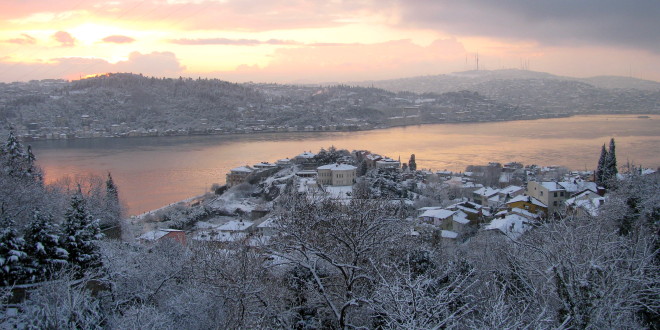
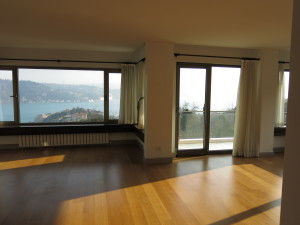
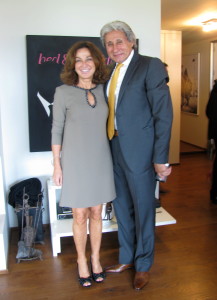
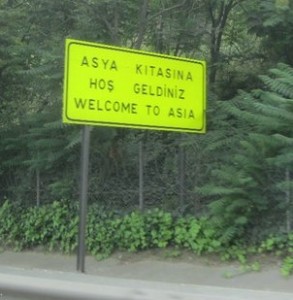
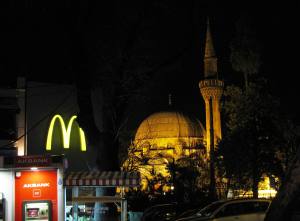
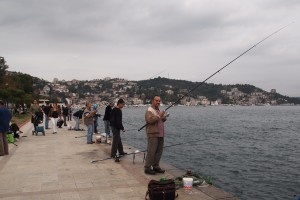
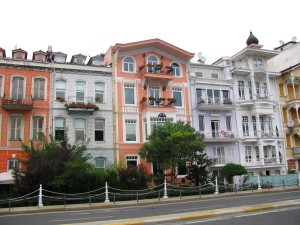
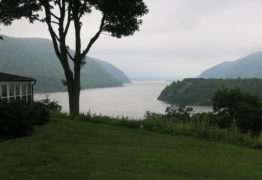
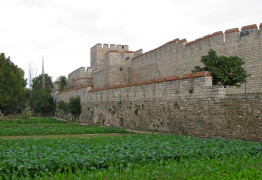
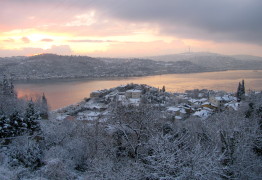
oh lord you spoke directly to me this morning….Maine is a long way from Istanbul and I’m up to my ears in snow and surrounded by woods and water but the rest is here…the trips to find house things, the not knowing anyone or having anything specific to do…..the fear of driving on snowy icy roads….so thanks you made me smile…..and at least I speak the language…sort of!! i will remember “to be friends with whiever is nice to me “….it is a good and very valid point!
Oh and my washing machine isnt responding either and seems to speak ” literally” speak in code….code for “the pipes are frozen” (dummy)- at least thats what I infer from its plaintiful musical message and strange E4 flashing warning)!!
Beautiful blog post about Turkey and I loved your catchy list of every day Middle Eastern words!